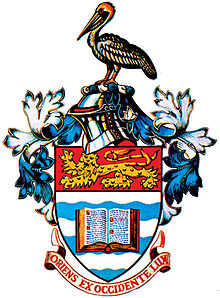Laws in Guyana contribute to high HIV rates
Colin Stewart is a 45-year journalism veteran. He is the…

Laws against LGBT activities in Guyana have led to harassment, discrimination, vigilante justice and high levels of HIV infection in the LGBT community, according to a report from the University of the West Indies Faculty of Law in Barbados.
In Guyana and 10 other Caribbean countries, anti-LGBT laws have contributed to an increase in HIV/AIDS among men who have sex with men, said Juliet Bynoe-Sutherland, director of the Pan Caribbean Partnership Against HIV and AIDS.
Guyana’s overall HIV infection rate is estimated at 1.2 percent, but about 19.4 percent of Guyanan men who have sex with men are infected, according to the United National AIDS Report of 2010.
The author of the report, anthropologist Christopher Carrico, said that his interviews with 25 Guyanese citizens showed that:
“Many of the respondents were fearful of reporting crimes that had been committed against them because they believed or were told that charges would also be brought against them because of their sexual orientation or gender identity. As such, the researcher deducted that many of the crimes committed against sexual and gender minorities “are enabled because perpetrators think they can act with impunity, or even believe that they are privately enforcing the law”.
The study found examples of discrimination in the workplace and limited access to health care for LGBT people, the news website Demerara Waves reported in an article titled “Life is hard for Guyana’s gays, lesbians.”
Guyana is in the midst of a review of the impact of its laws against homosexual behavior, with an eye to possibly repealing them. Current laws prohibit cross-dressing; “acts of gross indecency with male person,” which carries a sentence of up to two years in prison; attempted “unnatural offenses,” up to 10 years in prison; and buggery, up to a life sentence.
The study said some of these laws are not often enforced, but still have serious consequences.
“There are many ways in which judgments are made, and punishments are meted out long before there are trials,” reported the Guyana Times website.
The project was funded by the British High Commission for Guyana, Barbados and the Eastern Caribbean.
Related articles
- Guyana might stop treating LGBT people as criminals (76crimes.com)
- LGBT people in Kenya: No one cares about worsening AIDS? (76crimes.com)
- Money fights AIDS where homosexuality is illegal (76crimes.com)



